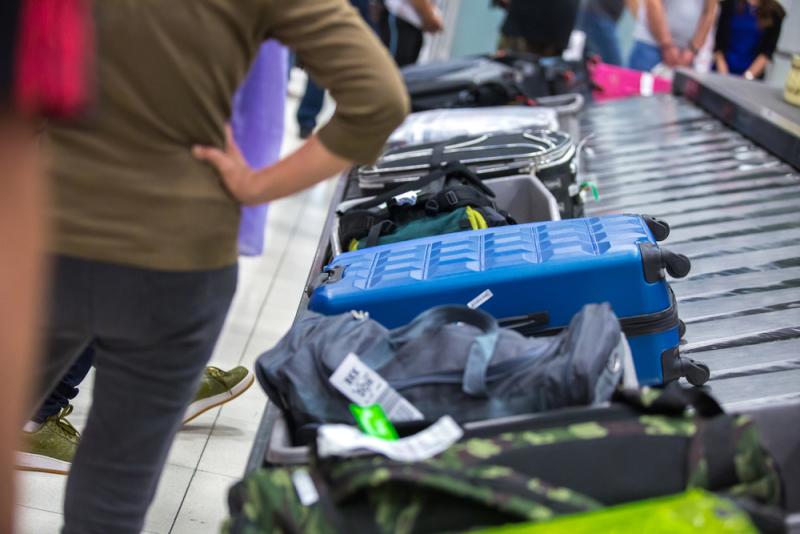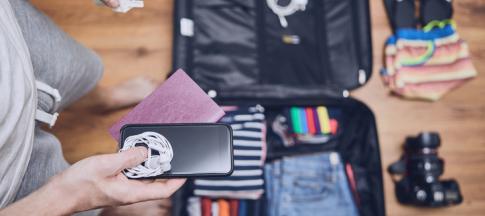
It can be stressful if your luggage is either lost or is delayed at the airport.
Your travel operator should compensate you if the loss is their fault, whether that’s at the airport or on alternative transportation.
But having an appropriate travel insurance policy will cover you if your luggage is lost or stolen at any point during your trip, not just when you’re travelling.
Below, we’ve explained what you should do if your bags are lost or delayed and how to choose the right insurance policy to cover you.
What to do when your luggage is lost or delayed
If you’re at the airport and discover that your luggage is lost or delayed, you need to follow these steps.
Go to your airline’s help desk – report your baggage as missing.
Complete a property irregularity report (PIR) – include your personal details, information about the flight you were on, a detailed description of the lost luggage and a list of the items in it.
Check the airline's progress – some airlines have an online tracking service, saving you the hassle of calling them whenever you want an update on your bags.
Resolving your claim
Ideally, your bags will be found and returned to you as soon as possible. In the meantime, the airline must pay reasonable compensation to cover essentials like clothes and toiletries.
Remember that the travel operator’s idea of ‘reasonable’ might differ from yours, so check before buying expensive replacements. Not all airlines compensate with upfront cash; you may be expected to reclaim costs once you’re home.
If your luggage is lost – not just delayed – and the airline can’t locate it within 21 days, you’re entitled to claim total compensation from them.
They’ll ask you for a list of your bag’s contents and receipts to prove that you owned the items you’re claiming for. You won’t get the cost you paid for your items when they were new. Your airline will probably deduct an amount for wear and tear.
Travel insurance for your luggage
If your airline loses your bags, contact them first for compensation and follow the process above. However, your travel insurer may also reimburse you if you have the right cover.
Before buying your travel insurance, work out a rough value estimate for your luggage, then use this figure to decide what level of cover you need.
We offer personal belongings cover of up to £1,000, £2,000 and £3,000, depending on the level of cover you choose. Personal belongings just means all the items you take on holiday with you.
You may have also packed some valuables in your luggage. Some policies will have a separate valuables limit.
How to claim for lost or delayed luggage
If you’re making a luggage claim that’s been lost or delayed, you must have submitted a property irregularity report (PIR).
For any other lost luggage, you need to:
- Report the loss or theft to the police – within 24 hours of discovering your missing items.
- Contact your insurer – so they can assist you with your claim.
When contacting your insurer, all the following documents can help support your claim:
- receipts
- photographs
- airline tickets
- luggage tags
Your insurance provider will decide how best to compensate you – it might include paying for the cost of replacements or, in the case of damaged items, paying for their repair.
Note that you won’t receive the total cost of any more than a year-old items, as wear and tear will be considered.
Insuring valuables while travelling
Most policies include a single-item limit. This is the maximum amount you’ll be compensated for a single item.
Some policies also include a separate valuables limit which is the total limit for all the valuables items you need to claim for.
For example, if you lost a £1,000 laptop and a £300 camera, but your valuables limit is £400, the latter figure is the maximum amount you’ll be able to claim, which could leave you £900 out of pocket.
It might be best to arrange cover separately from your general travel insurance policy for valuable items like this. You can receive extra cover by:
- Buying a gadget insurance add-on – this will cover tech items like cameras, mobile phones or tablets while travelling.
- Arranging ‘away from home’ cover on your home insurance – since you need cover for these items all year round, it could be beneficial to insure them with the rest of your home contents. Some providers will need you to upgrade your insurance for your valuables to be covered away from home.


